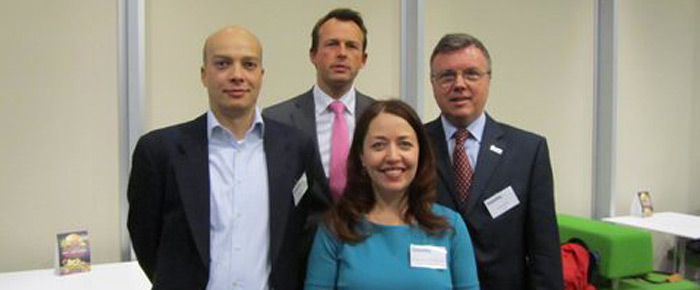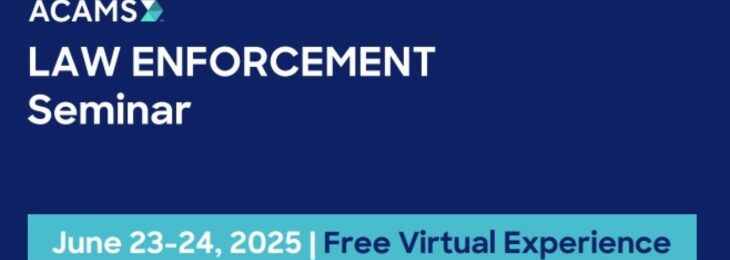
Deloitte were the hosts for 34 representatives from the Dutch banking and IT community at their offices in Utrecht. This was the fifth event organised by the new ACAMS Netherlands Chapter, the previous four falling under the banner of the ACAMS Benelux Chapter.
The ACAMS Netherlands Chapter was formed in September 2012 to serve specifically the Dutch financial services community and associated professions. Three former ACAMS Benelux Chapter members are on the board of the ACAMS Netherlands Chapter namely, Yevgeniya Balyasna-Hooghiemstra (chairperson), Jaap van der Molen (secretary) and Antal Ruiter (treasurer). In addition, the chapter has an additional board member, Barry Freeman (communications director).
The subject chosen for the November 2012 meeting was the Foreign Account Tax Compliance Act (FATCA). Four speakers offered their views and opinions:
Joost Toussaint, director, Deloitte Risk Services, Amstelveen;
Dave van den Bosch, FATCA program manager, SNS Reaal, Utrecht;
Edward Doyle, head of compliance solutions, Detica NetReveal, Dublin;
Patrick Ryan, director, KYCnet, Amsterdam.
Joost Toussaint began by giving a historical perspective as to why FATCA came into being mainly as a result of tax evasion taking place by U.S. citizens using Swiss bank accounts. The first U.S./Swiss bilateral tax treaty was established in 1996, 2008 and 2009 voluntary disclosure programmes were introduced between the two countries. The U.S. Government decided to look at the bigger picture of tax evasion by U.S. citizens and legal entities outside the USA and this culminated in the Hiring Incentives to Restore Employment (HIRE) Act of 2010 of which FATCA is a constituent part.
Intergovernmental agreement (IGA) was next on the agenda and it appears that countries are now queuing to sign these reciprocal agreements with the U.S. Treasury as they can see the benefit of the U.S. Treasury reporting bank account details of their own citizens and legal entities residing in the USA.
Joost then discussed how the implementation of FATCA impacts Customer Due Diligence (CDD) and Know Your Customer (KYC) processes on individuals and legal entities and how a distinction has to be made between the two profiles. In the case of the former they can be easily defined as a U.S .person or a non-U.S. person whereas the latter has three categories, namely FFI, non-financial foreign entities (NFFEs) and US Withholding Agents (USWAs).
FFIs can only implement their FATCA projects effectively by taking a structured approach when reviewing their clients by using knowledgeable personnel from every department of the financial institution.
Dave van den Bosch showed a slide of 'The Five Stages of Grief' and how it applies to FATCA. They are:
- Denial;
- Anger;
- Bargaining;
- Depression;
- Acceptance.
It remains to be seen at which point we currently are, but the general consensus is that we are still have a long way to go before acceptance is reached.
Dave then turned to how his own organisation is approaching FATCA which involves a very structured yet pragmatic approach and the reason why pragmatism is necessary is because the targets are moving and the implementation has a great impact on their own systems and processes.
He concluded by detailing the role of his organisation's compliance department in the project and its interaction with the legal and tax departments. In order for FATCA to be fully-implemented, it must be efficiently anchored in the framework of the organisation.
Edward Doyle was the first of our two Irish speakers both of whom gave other insights into FATCA, Edward from a system provider's perspective and Patrick Ryan from a service-provider's perspective.
Edward listed three challenges:
- Existing systems: The core elements of correct recordkeeping are paramount to the success of FATCA. Edward explained that existing systems may need substantial updating as FATCA data requirements go far beyond AML.
- Existing processes and data: FFIs must assess how good their customer onboarding processes are and how good they have been historically and have they been measured satisfactorily. There is also the question of remediation and how effective each FFIs process is.
- IGA and non-IGA: The final important challenge is how do FFIs plan to deal with those countries that have signed IGAs and those that have not.
Edward concluded his presentation by stressing a theme that he used throughout which was his 'green' journey. During FATCA implementation it behoves everyone to consider using systems that are already available but require enhancements and in doing so we can effectively "Re-use, Reduce and Recycle". His final comment in Irish Gaelic "Go neiri an bothar libh" ("May the road rise before you") is very apt in the long journey of FATCA implementation.
Patrick Ryan began by stating that at this point in time there are more questions to be asked than answers given. His message was:
- FFIs will be able to do a good job on natural person account holders as:
- They have the identity, communications and payment information to perform an effective U.S. persons probability analysis;
- They also have a pre-existing communication mechanism in place to contact and request information, certification etc.
- FFIs will struggle more with legal entities:
- The initial categorisation into U.S. legal persons, FFIs and NFFEs may be difficult;
- The further analysis and categorisation of NFFEs into active and passive will require information discovery of a nature uncommon or unknown within the standard AML KYC/CDD world, e.g., passive/active earnings ratios, asset utilisations; active/passive subsidiary analyses; five year histories etc.
- Passive NFFE controlling interest discovery and US person identification will be difficult;
- FFIs do not have any communication mechanisms in place regarding controlling interests which is another difficulty.
It is therefore important for FFIs to ensure they understand the difference between a controlling interesting and an ultimate beneficial owner (UBO).
Patrick concluded with some good advice concerning the one year delay to the FATCA timetable from January 2013 to January 2014. The additional time can be used by FFIs to ensure their three year remediation cycle for high, medium and low risk clients is robust to ensure that the database is correct and FATCA-compliant in terms of the types of records and information required.
In conclusion, FFIs are now realising that FATCA's aims are beneficial and are also a deterrent to money laundering and tax evasion as these two subjects are now interwoven. Once other countries have signed their IGAs their own national AML and tax evasion framework will be more robust. That is why it is important that all FFIs get it right now so that when the time comes for other 'FATCA' style legislation to be introduced the templates are already in place making implementation a lot cheaper and greener.










